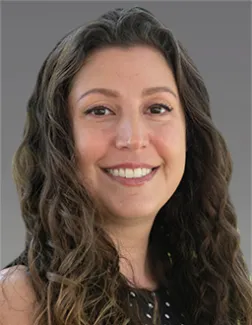

Information
Related Research Units
Research Overview
Dr. Arbab’s focus is to study causes of neurodegeneration using genome editing tools in cell and animal models, and to develop new gene-based therapeutic strategies that may one day treat genetic neurological diseases in patients.
Research Background
Dr. Arbab is the Lodish Family Assistant Professor of Neurology at Harvard Medical School, and faculty member of the Rosamund Stone Zander Translational Neuroscience Center at Boston Children’s Hospital. She received her PhD in Regenerative Medicine at the Hubrecht Institute in The Netherlands and completed an NWO Rubicon postdoctoral fellowship at the Broad Institute with Prof. David Liu, where she developed high-throughput CRISPR assays to characterize genome-editing tools in mammalian cells and predict genome editing outcomes. She has applied these insights to treat genetic neurological disorders with genome editing therapeutics in cells and in mice. In 2021, Manda was awarded a Pathway to Independence Award from the NIH National Institute of Neurological Disorders and Stroke.
Publications
- Base editing of trinucleotide repeats that cause Huntington's disease and Friedreich's ataxia reduces somatic repeat expansions in patient cells and in mice. Nat Genet. 2025 May 26. View Abstract
- Author Correction: Efficient C•G-to-G•C base editors developed using CRISPRi screens, target-library analysis, and machine learning. Nat Biotechnol. 2023 Nov; 41(11):1655. View Abstract
- Base editing rescue of spinal muscular atrophy in cells and in mice. Science. 2023 04 21; 380(6642):eadg6518. View Abstract
- Evolution of an adenine base editor into a small, efficient cytosine base editor with low off-target activity. Nat Biotechnol. 2023 05; 41(5):673-685. View Abstract
- Efficient C•G-to-G•C base editors developed using CRISPRi screens, target-library analysis, and machine learning. Nat Biotechnol. 2021 Nov; 39(11):1414-1425. View Abstract
- Determinants of Base Editing Outcomes from Target Library Analysis and Machine Learning. Cell. 2020 07 23; 182(2):463-480.e30. View Abstract
- Continuous evolution of SpCas9 variants compatible with non-G PAMs. Nat Biotechnol. 2020 04; 38(4):471-481. View Abstract
- Author Correction: Predictable and precise template-free CRISPR editing of pathogenic variants. Nature. 2019 03; 567(7746):E1-E2. View Abstract
- Predictable and precise template-free CRISPR editing of pathogenic variants. Nature. 2018 11; 563(7733):646-651. View Abstract
- Self-Cloning CRISPR. Curr Protoc Stem Cell Biol. 2016 08 17; 38:5B.5.1-5B.5.16. View Abstract
- Cloning-free CRISPR. Stem Cell Reports. 2015 Nov 10; 5(5):908-917. View Abstract
- DAZL regulates Tet1 translation in murine embryonic stem cells. EMBO Rep. 2015 Jul; 16(7):791-802. View Abstract
- Modeling motor neuron disease: the matter of time. Trends Neurosci. 2014 Nov; 37(11):642-52. View Abstract
- A multi-parametric flow cytometric assay to analyze DNA-protein interactions. Nucleic Acids Res. 2013 Jan; 41(2):e38. View Abstract